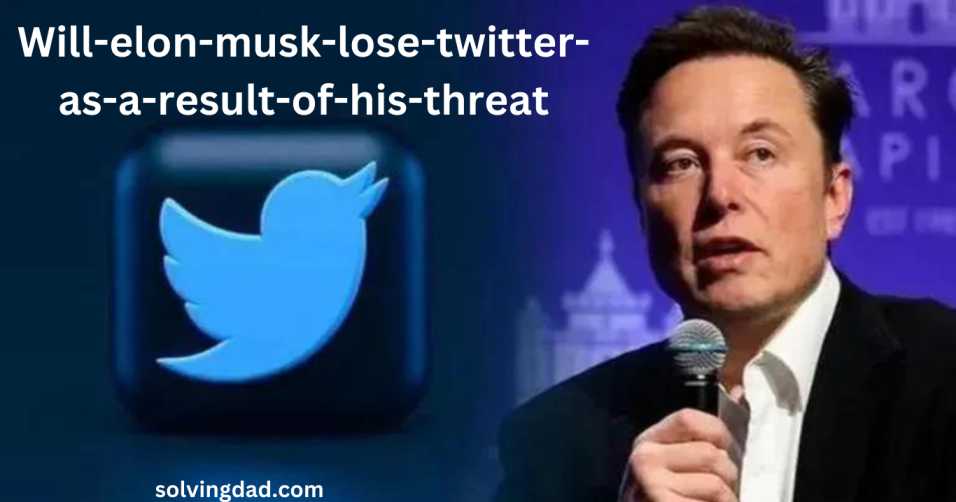A few hours after he was captured on camera at the World Cup final in Qatar, Elon Musk posted a poll on Twitter asking if he should step down as the company’s CEO.
The image reveals two things. First, it shows Musk standing next to Jared Kushner, the son-in-law of former US President Donald Trump, whom Musk has unsuccessfully sought to persuade to join the social network he now owns.
Musk is aware that a bombastic tweet from Trump would probably create a contentious yet “jackpot” moment for Twitter and draw massive audiences to the service.
Of course, Trump is aware of this as well and has his own objectives, including his own social network, Truth Social, to which he has so far remained devoted.
Please excuse the pun, but Musk hasn’t yet used his trump card.
The second observation about the image? It demonstrates that Musk was physically close to Saudi Arabia, which is where Twitter’s largest investors are located. Did he stop by, and did they—along with the millions of users of Twitter who do so every day—ask some pointed questions about his leadership during the previous few months?
There is also the issue with the poll itself. Depending on what we believe Musk was trying to accomplish, how we interpret the results, which were Musk stepping down as CEO of Twitter with 57% of the 17.5 million votes cast.

If Musk was hoping for an ego boost, the poll has either miserably failed, or it has been a big success in freeing him from the pretty massive hook he has found himself trapped on since his purchase of Twitter was essentially forced through.
Don’t forget that the Tesla owner tried unsuccessfully for months to avoid buying this business.
Musk’s Twitter feed is unusually quiet as I write this.
Undoubtedly, it won’t remain the case forever. He has a history of paying attention to polls. After all, he started the whole circus by asking for votes on whether or not he should purchase Twitter.
Additionally, he has previously requested Twitter users’ advice on whether to sell pricey Tesla stock.
To put it mildly, it’s an unusual approach to conduct business on a large scale. But when it comes to Elon Musk, we’ve come to anticipate the unexpected.
Upcoming CEO
So who takes over if he follows the advice of the people and resigns?
Since joining the social media firm, he has operated alone. No regular reference of a deputy or someone with whom he has collaborated closely has been made. Sheryl Sandberg was Sheryl Zuckerberg’s for Meta, while Andy Jassy was Jeff Bezos’ for Amazon (now CEO). Musk doesn’t have a clear Twitter supporter.
Even the senior leaders Musk first considered to be his loyalists, such as Yoel Roth, Head of Trust and Integrity, have now departed the company and criticised Musk’s management.
But take a moment to think about the CEO of Twitter’s job description before you dust up your resume. You inherit a demoralised crew with the most demanding boss in the world, half of whom were recently laid off, and the others were told to put in enormous hours. According to Musk, the financial situation is dire: Twitter is reportedly losing $4 million every day.
The legacy of erratic decision-making that has characterised recent months at Twitter is another factor. Musk had a very personal approach to moderation. He claimed he wanted to create a “digital town square,” but it was quickly feeling more like you had entered his home and were attempting to avoid knocking over the decorations.
Policies appeared to change on a whim.
Any future CEO will also have to deal with the difficulty of trying to keep the 300 million Twitter users who tweet in real time safe from potentially abusive, inflammatory, and occasionally illegal content.
Add Musk’s unpredictable nature and the constant danger that his next tweet could result in extensive reputational harm and/or regulatory scrutiny to the mix. After all, he was prohibited from tweeting about Tesla after his overvaluation claims caused the share price to drop.
The only way up, though, is another possibility.
A new CEO who is less committed to unrelenting upheaval could reassure shareholders and boost employee morale. Currently, I see a threat to leave Twitter or a complaint about it every other tweet in my feed. One could argue that a social network that is too self-absorbed is not living up to its promise.
Elon Musk, a space fanatic, believed Twitter needed some rocket fuel, and he most certainly gave it to them.
However, it’s possible that he’s now discovering the hard way that social media and the people who use it are not automated. Perhaps this ailing company’s future lies not in the heavens, but rather with its feet firmly planted on the ground. If he’ll allow it.
